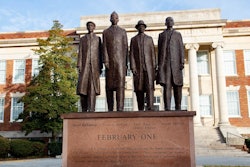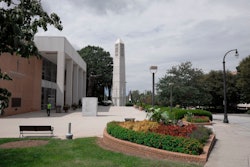Schools and school practices are integral to racial reconciliation and justice in the U.S., according to a new report that was published as part of UCLA’s Civil Rights Project. Dr. Liane I. Hypolite
Dr. Liane I. Hypolite
In the report titled, "The Racial Reckoning and the Role of Schooling: Exploring the Potential of Integrated Classrooms and Liberatory Pedagogies," the authors cite existing research to describe the ways in which schools, classrooms, and teaching strategies can be used to further racial equality and anti-racism.
After the 2020 police murder of George Floyd and the protests and “racial reckoning” against police violence that followed, various industries and sectors have had to reassess – or were said to be due for reassessments of – their own conditions and hierarchies, the report authors wrote.
However, subsequent white, conservative responses to these reckonings – such as attacks against Critical Race Theory – instead resulted in a perpetuation of racially inequitable and unjust conditions, the report noted. U.S. school systems have faced similar movements and tensions, with opposing efforts from leaders and stakeholders seeking to promote or silence the teaching of matters related to race.
“Any reckoning that began with George Floyd’s death in 2020, has itself been reckoned with, constraining many of the policies and practices that sought to undermine racial inequality in the United States,” the report noted.
Despite the outcome of the 1954 landmark case of Brown v. Board of Education and the resulting progress towards integration, racial segregation in schools persists. Research has shown that racial segregation increased during the 1990s, mostly because of rising segregation between school districts.
U.S. society never really got to the point of true integration and is now backsliding into resegregation, said report co-author Dr. Liane Hypolite, an assistant professor of educational leadership at Cal Poly Pomona.





















